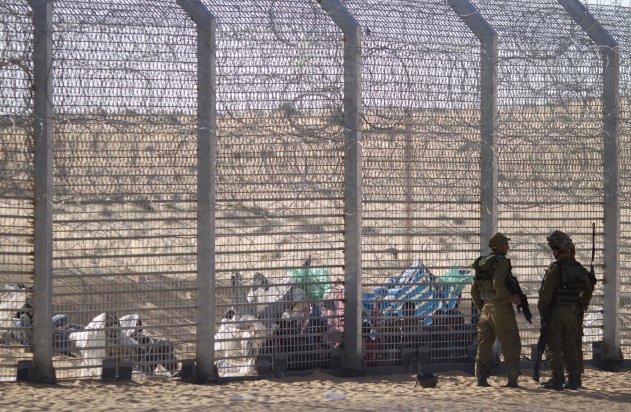
Israel has apparently decided to take an even harsher line against refugees that try to enter the country from the south. About a week ago it stopped a group of 21 Eritrean refugees from entering and consequently the group, including two women and a teenager, according to
activists and an AP photographer who was at the site Tuesday, are trapped between the two borders. As can be seen on the picture taken by AP, they are sitting beside Israel's new border fence, shaded by blue-striped plastic they hoisted above themselves.
Israel's military has since sealed off the area. A spokesman said soldiers were giving the group water and food. But the site +972 reported that the soldiers initially only gave the Eritreans a little water and that it took six days before some food was also distributed.
The envoy for the UN High Commissioner for Refugees in Israel has called on Israel to grant immediate entry to a group. In an interview to Haaretz last night William Tall called on
Israel to "step up to its responsibilities," saying that it could not
"simply shut the door" and must allow them in and process their claims
for asylum.
However, Israeli
Interior Minister Eli Yishai has said that the Eritreans will not be allowed in, because
that would encourage more African migrants to make the trip. "If
there were no fence there, and we were not determined (to stop the
influx of migrants), then that number would become 1 million people," he
said.
Israel has almost
completed a barrier along 200 kilometers (125 miles) of its border with
Egypt to block African migrants and militants from the Sinai. It is also in the process of expanding the capacity of detention centers to ensure that those
entering are immediately held. Most
of the Africans are from Sudan and Eritrea. Under international law,
Israel cannot return people to those two countries because of their poor
human rights records. Many of the Sudanese ad Eritreans have settled in Tel Aviv.


.jpg)


No comments:
Post a Comment